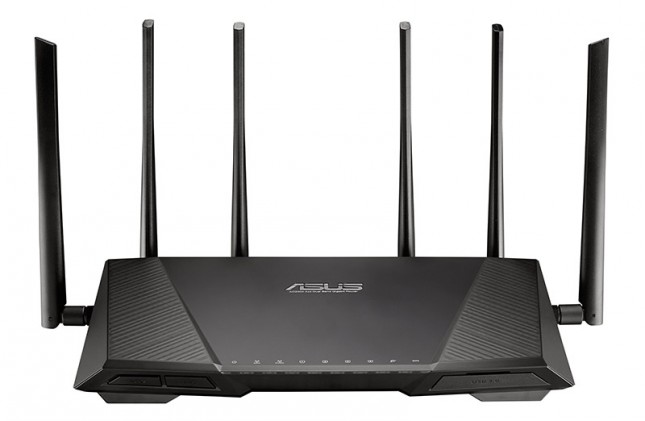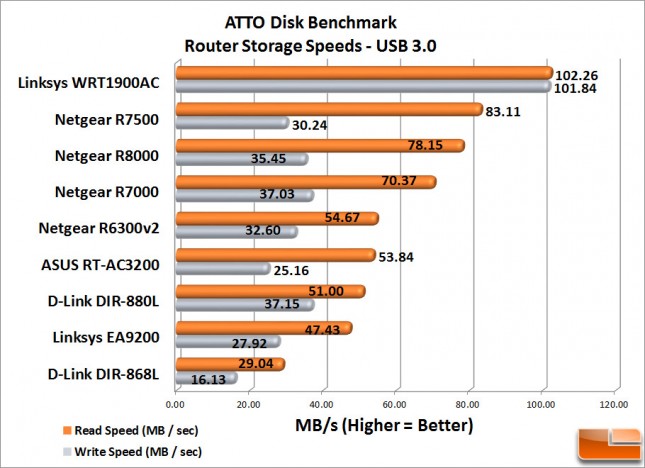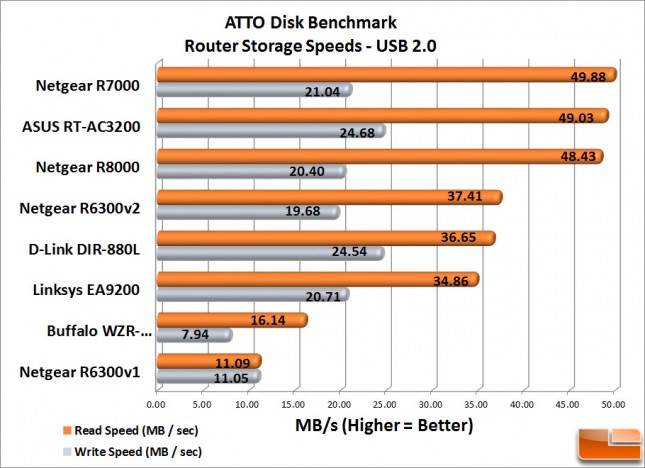ASUS RT-AC3200 Tri-Band Wireless Router Review
ASUS RT-AC3200: Attached Storage Tests
One of the major components of these next-generation routers is the ability for them to double as home-ready Network Attached Storage (NAS) devices. If a person didnt want to spend a lot of money for a stand-alone NAS unit which could cost hundreds of dollars for a 2TB unit, an integrated solution that allows you to add a USB Flash drive for much less might be perfect. Of course the question is how good is the performances of these routers when it comes to attached storage.
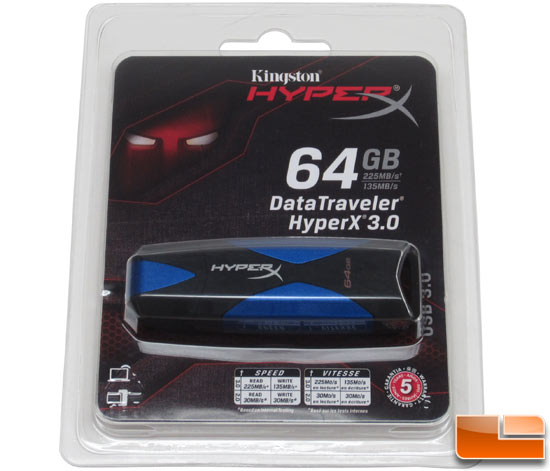 For our Router Storage test, we used the very popular ATTO Disk Benchmark to measure transfer speeds of our routers USB 2.0 and USB 3.0 ports. ATTO measures raw transfer rates for both Read and Write plotting them in a graph that is easy to understand. We ran our routers with this test with default ATTO settings of 0.5 KB up through 8192.0 KB transfer sizes with the total length being 256 MB.
For our Router Storage test, we used the very popular ATTO Disk Benchmark to measure transfer speeds of our routers USB 2.0 and USB 3.0 ports. ATTO measures raw transfer rates for both Read and Write plotting them in a graph that is easy to understand. We ran our routers with this test with default ATTO settings of 0.5 KB up through 8192.0 KB transfer sizes with the total length being 256 MB.
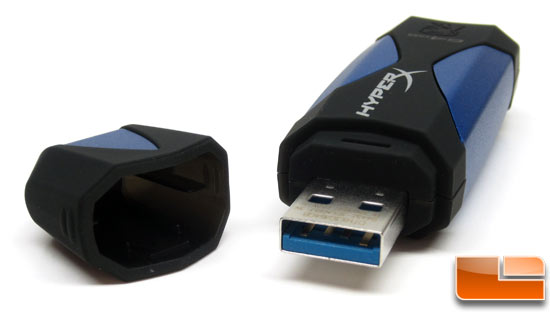
The folks at Kingston were kind enough to send over a Kingston DataTraveler HyperX 3.0 64GB USB drive ($60.00 shipped) for our tests. The Kingston HyperX USB 3.0 Flash drive is rated conservatively at 225MB/s read and 135MB/s write. On our test system we were able to get 300MB/s read and 160MB/s write speeds on the DTHX30/64GB. Those speeds should be well over what this generation routers can support. We wanted to make sure the write speeds would be high enough not to bottleneck the benchmarks of these next generation routers.
Benchmark Results: The front USB 3.0 port on the ASUS RT-AC3200 Tri-Band wireless rotuer was capable of hitting 54 MB/s read and 25MB/s write speeds when it came to testing sequential read/write performance. This certainly isn’t the fastest SuperSpeed USB 3.0 performance that we have seen on an 802.11ac router, but the read speeds are certainly higher than what you can get on a ‘normal’ USB 2.0 port.
Benchmark Results: When looking at the rear USB 2.0 port we found that we could hit 49MB/s read and 25MB/s write, which is very similar to the front USB 3.0 port. The USB 2.0 standard has a theoretical maximum transfer rate of 60MB/s, so it looks like it is being highly utilized here on the read speeds.

